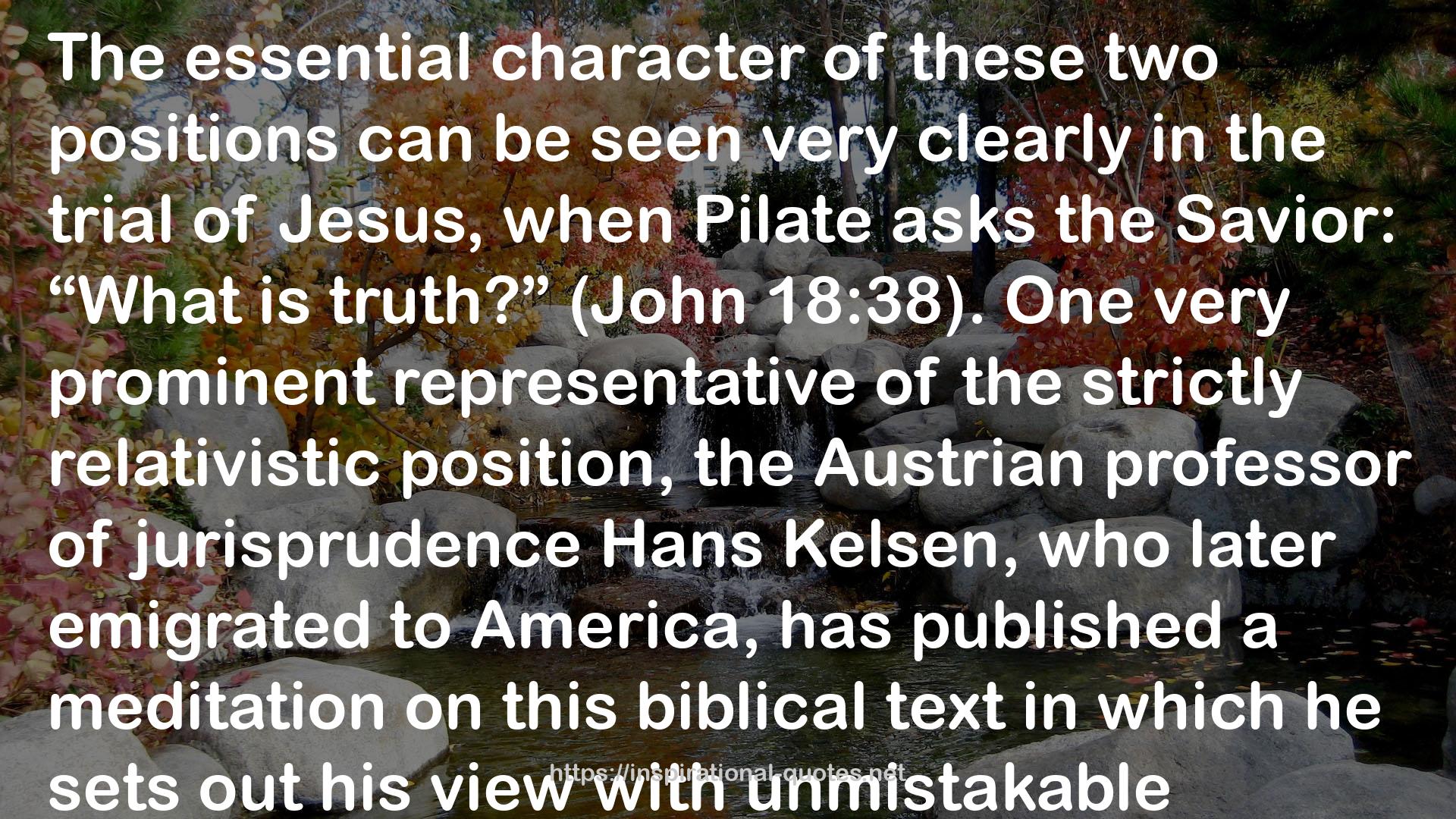" The essential character of these two positions can be seen very clearly in the trial of Jesus, when Pilate asks the Savior: “What is truth?” (John 18:38). One very prominent representative of the strictly relativistic position, the Austrian professor of jurisprudence Hans Kelsen, who later emigrated to America, has published a meditation on this biblical text in which he sets out his view with unmistakable clarity.3 We shall return below to Kelsen’s political philosophy; let us first see how he expounds the biblical text. Kelsen sees Pilate’s question as an expression of the skepticism that a politician must possess. In this sense, the question is already an answer: truth is unattainable. And we see that this is indeed how Pilate thinks from the fact that he does not even wait for an answer from Jesus but turns immediately to address the crowd. He leaves it to the people to decide the disputed question by means of their vote. Kelsen holds that Pilate acts here as a perfect democrat: since he himself does not know what is just, he leaves it to the majority to decide. In this way, the Austrian scholar portrays Pilate as the emblematic figure of a relativistic and skeptical democracy that is based not on values and truth but on correct procedures. "
― Benedict XVI , Values in a Time of Upheaval
